COVID-19

Infrastructure, Fair Housing Rules Reinstated, Civil Rights Leaders Meet with Manchin & More: June 9 Joint Center Roundup
Biden Administration
Infrastructure negotiations shift: President Biden ends infrastructure negotiations with Senator Shelley Capito (R-WV) and continues the discussion with a bipartisan group of senators who are aiming to release a proposal by the end of the week. President Biden’s decision to move forward came after the “GOP group’s refusal to significantly increase the number of new investments” and “Republicans’ inability to specify ways to pay for the package.” President Biden’s infrastructure plan seeks to invest into “communities that have historically been hurt by infrastructure projects,” replacing pipes and services lines in communities, and expanding broadband access and affordable housing options, all issues of vital importance to Black communities.
Restoring fair housing rules: The Department of Housing and Urban Development (HUD) will reinstate the Obama Administration’s fair housing rules that require communities to “take steps to reduce racial segregation or risk losing federal funds.” However, the previous requirement for communities to undergo an “analysis of local barriers to integration and submit plans to dismantle them” to HUD will not be included. The Biden Administration claims this mandate “proved to be unnecessarily burdensome,” while housing experts say that without the mandate “the agency would have a difficult time enforcing the requirement that communities take meaningful action against long-standing segregation.”
President Biden acknowledges the 40th year of the HIV/AID epidemic: President Biden’s statement on the 40th year of the HIV/AIDS epidemic recognizes the “heartbreaking human toll that has disproportionately devastated LGBTQ+ communities, communities of color, and underserved and marginalized people around the world.” Equitable access to prevention, care, and treatment by researchers, scientists, and health care providers and the eradication of discrimination against those living with HIV are uplifted as pillars of action moving forward. Congresswoman Barbara Lee (D-CA) also mourns the “32 million lives lost to HIV/AIDS,” and promises to “continue fighting for an HIV/AIDS-free generation.”

Increasing vaccination rates in Black communities: The White House rolled out a series of new initiatives that include partnerships with Black-owned barbershops and beauty salons, paid time off incentives, and childcare help. Vice President Kamala Harris will also lead a vaccination tour across the South and Midwest, “where states with large Black populations like Mississippi and Alabama rank among the lowest overall vaccination rates.” Some claim ongoing vaccine “hostility” exists due to “ingrained skepticism of a federal government that’s historically failed minorities when it comes to public health, difficulties getting the transportation or time off to seek out a vaccine or a lack of community outreach.”
Tubman portrait on $20 bill is nowhere in sight: Congressional Black Caucus Chair Joyce Beatty (D-OH) introduced legislation in January “to require that any $20 bill printed after 2024 include a portrait of Tubman.” However, there is “little evidence” that the administration has taken steps to accelerate the actions of the Bureau of Engraving and Printing. U.S. Department of Treasury officials note portrait changes are not “as simple as it sounds” because of necessary “sophisticated anti-counterfeiting features.” This delay is notable as “Biden relied on a coalition of women and Black voters to win the White House” and personally promised to “honor the contributions of women and people of color.”
Legislation for commission to study reparations remains stagnant: While President Biden’s appearance and speech during the Tulsa Race Massacre commemoration were notable, an omission of mention for reparations stood out “glaringly” for attendees. The Biden administration has yet to endorse H.R. 40, the Commission to Study and Develop Reparation Proposals for African Americans Act (summary here), but reiterates the work he is already doing to dismantle systemic racism and address racial disparities. Members of the Congressional Black Caucus note they will continue to look after the needs of Black communities and “push” President Biden.
The Hill
Civil rights leaders meet with Manchin: After Senator Joe Manchin (D-VA) confirmed that he will oppose filibuster reform and the For the People Act in favor of the John Lewis Voting Rights Advancement Act, leaders from Lawyers’ Committee for Civil Rights Under Law, The Leadership Conference on Civil and Human Rights, NAACP, National Action Network, National Council of Negro Women, and National Urban League met with him to express the need to pass the For the People Act, the John Lewis Voting Rights Advancement Act, and the George Floyd Justice in Policing Act. Manchin said his position has not changed since meeting with the civil rights leaders. Many fear Senator Manchin’s opposition may jeopardize President Biden’s agenda for racial equity. As of now, the Senate is divided at 50-50, making Senator Manchin’s vote necessary for Democrats to maintain control of the Senate.
As many Black pastors in Georgia are advocating for federal voting rights reform, Speaker of the House Nancy Pelosi (D-CA) confirmed the John Lewis voting rights bill won’t be ready until the fall. However, a Washington Post op-ed claims the John Lewis voting rights bill won’t be enough to combat voter suppression tactics.
Enhancing Oversight to End Discrimination in Policing Act: Congresswoman Marilyn Strickland (D-WA) and Senator Elizabeth Warren (D-MA) re-introduce the Enhancing Oversight to End Discrimination in Policing Act to “strengthen the U.S. Department of Justice’s (DOJ’s) and state governments’ ability to investigate police departments with a pattern or practice of unconstitutional and discriminatory behavior.” Several Black advocacy and civil rights organizations endorse this legislation including the NAACP Legal Defense and Educational Fund, Inc., National Urban League, National Organization of Black Law Enforcement Executives (NOBLE), and the National Action Network.
Black renters in peril: The national moratorium on evictions is set to end on June 30, and many renters are still behind on rent due to the pandemic. According to the Center on Budget and Policy Priorities, 22 percent of Black renters reported being behind on rent payments compared to 9 percent of white renters.
Appointments
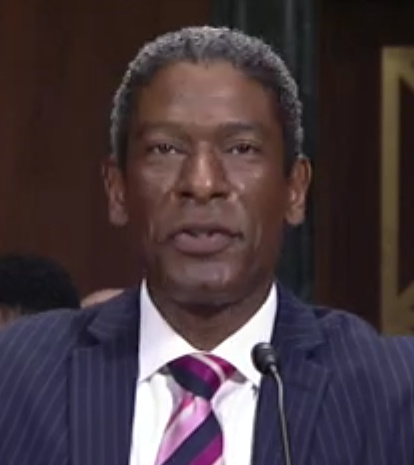
Black district court judge among first confirmed: The Senate confirmed President Biden’s judicial nominee Julien Xavier Neals to serve as a district court judge in New Jersey with a 66-33 vote. Alongside Judge Neals, the Senate also confirmed Judge Regina M. Rodriguez as a judge for the U.S. District Court for the District of Colorado. In a statement, President Biden said he is “honored to include both of them in the very first nominations [he] made to the Federal Bench,” and noted that “they embody the professional excellence and devotion to the rule of law and our Constitution that the American people expect of Federal judges,” are “highly qualified,” and “represent the diversity that is one of the ultimate strengths of our nation—in all branches of government, including the judiciary.” The Senate has yet to confirm President Biden’s four Court of Appeals nominees who are Black women: Judge Ketanji Brown Jackson, Judge Tiffany Cunningham, Judge Candace Jackson-Akiwumi, and Judge Eunice C. Lee. (See more details on these nominees in a previous Joint Center roundup.)
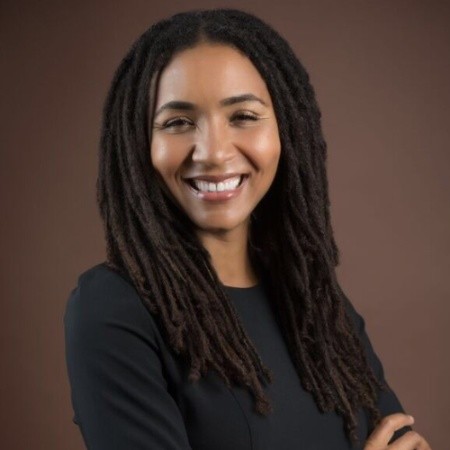
Biden nominates Paloma Adams-Allen for Deputy Administrator for Management and Resources at the U.S. Agency for International Development (USAID). Ms. Adams-Allen is the President and Chief Executive Officer for Inter-American Foundation. She has previously served for USAID as a deputy assistant administrator in 2015.
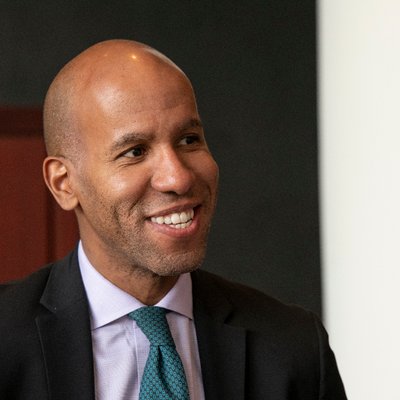
Biden appoints Brian Nelson for Under Secretary for Terrorism and Financial Intelligence at the Department of Treasury. Mr. Nelson is the chief legal officer of LA28, the organizing committee for the 2028 Olympic and Paralympic Games in Los Angeles. He has served in senior roles in the California Department of Justice and in the National Security Division at the Department of Justice.
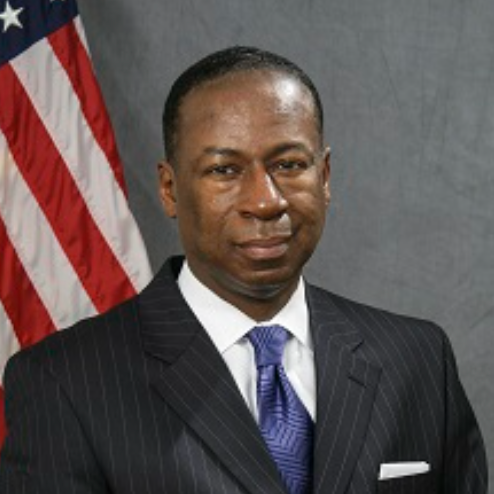
Biden nominates Larry D. Turner for Inspector General at the Department of Labor. Since June 22, 2020, Mr. Turner has served as the Acting Inspector General in the agency. He was previously sworn in as the Deputy Inspector General in 2014. Prior to joining the Department of Labor, Mr. Turner served as an Army Installation Management Command Liaison Officer to the Army Materiel Command. He served 24 years in the U.S. Army and retired as a Lieutenant Colonel.
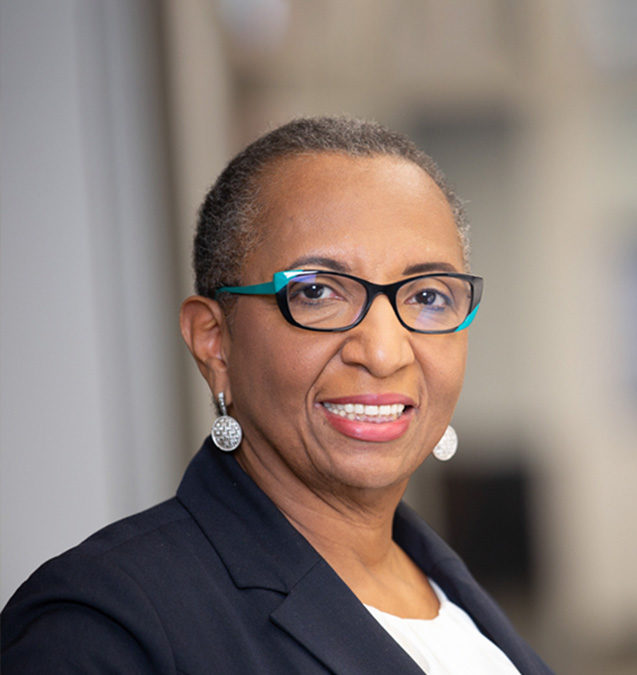
Biden nominates Gwynne Wilcox for Member of the National Labor Relations Board. Ms. Wilcox is a senior partner at Levy Ratner, P.C., a New York City union-side labor and employment firm. She is a Fellow of the College of Labor and Employment Lawyers and a member of the Labor and Employment Law sections of both the American Bar Association and New York State Bar Association.
Economic Policy
Unemployment disparities: The Black unemployment rate fell slightly to 9.1 percent in May from 9.7 percent in April. Weekly unemployment claims dropped to 385,000 for the week ending May 29.
A Black farm bill: Black farmers and other farmers of color are to start receiving loan forgiveness this month as part of the $4 billion allocated in the American Rescue Plan. Meanwhile, multiple lawsuits have been filed and legislation introduced in response to the efforts. In the past 100 years, Black farmers lost 85 percent of their land, the Washington Post reports.
Seize the moment and invest: Projecting that Black child poverty rates will reach 24.3 percent in 2022 and 21.8 percent for Latino children, the Center on Budget and Policy Priorities urges the nation to invest in children, health care, and workers in order to dismantle racial disparities and achieve an equitable recovery.
A more inclusive EITC: Expanding the Massachusetts Earned Income Tax Credit (EITC) could help the state better serve low-income immigrant taxpayers who are ineligible for the federal EITC, argues a Boston Globe columnist.
COVID job loss struck Black mothers harder: Black single mothers were more likely to have lost work than their white peers during the pandemic. The rate at which Black single mothers lost a job was 7.5 percentage points higher in Jan. 2021 than a year earlier, the Columbus Dispatch reports.
Cancel student debt: “Student debt is a contradiction in terms,” said DC Councilwoman Janeese Lewis George (D), who introduced a resolution in the District calling on President Biden to cancel student loan debt. “Students should not have to accrue debt to be educated, and education should be a public good. The student debt crisis hits communities of color, women, and low-income families hardest — both in the District and across the United States.”
Kamalanomics: “In this moment, more than repair, we must reimagine,” Vice President Kamala Harris told Forbes, arguing that small businesses need more access to capital and fewer barriers to success. She stressed the importance of government investing in community lenders, which traditionally value entrepreneurs of color.
COVID hurt Black entrepreneurs: Citing lack of capital and other barriers, Forbes examines the disproportionate impact of COVID-19 on Black small businesses, including a 40 percent decline in Black business owners in the first quarter of 2020.
Tech Policy
Dems press Google on racial bias: A group of Democratic senators, including Cory Booker (D-NJ), are urging Google’s parent company, Alphabet, to investigate racial bias in its products and policies, beginning with a “racial equity audit.” In a letter to the company, the legislators cite issues ranging from algorithmic bias to the firing of Google’s first Black woman research scientist, Dr. Timnit Gebru.
Tech should help pay for broadband: A member of the FCC is calling for major tech companies, including Google and Apple, to pick up a greater share of the costs of building and maintaining the nation’s internet infrastructure. Commissioner Brendan Carr argues that Big Tech garners tremendous revenues from high-speed networks and these companies should pay their fair share to drive down “the unsustainable 30 percent tax that currently hits consumers on their monthly bills.”
Segregation seeds bias in tech: A legal scholar argues that the impact of racial segregation and bias shapes data-driven technologies and applications, influencing algorithmic design, analysis, and outcomes. The author, Dr. Rashida Richardson, cites Joint Center research on racial diversity among congressional staff. Lack of diversity within technology policymaking can impact technology development and the implications of algorithmic bias.
Stop exporting discriminatory tech policy: Fifteen national organizations, including the Joint Center and civil rights groups such as Color of Change, are urging President Biden to strip international trade agreements of domestic liability protections that shield major tech companies from racial or gender-based discrimination complaints. Such trade agreements may give technology companies the right to violate civil rights laws without incurring legal liability.
New ways to expand broadband: Rep. G.K. Butterfield (D-NC) introduced legislation to increase broadband access for households and small businesses by allowing more service providers to participate in the FCC’s Universal Service Fund programs.
COVID-19
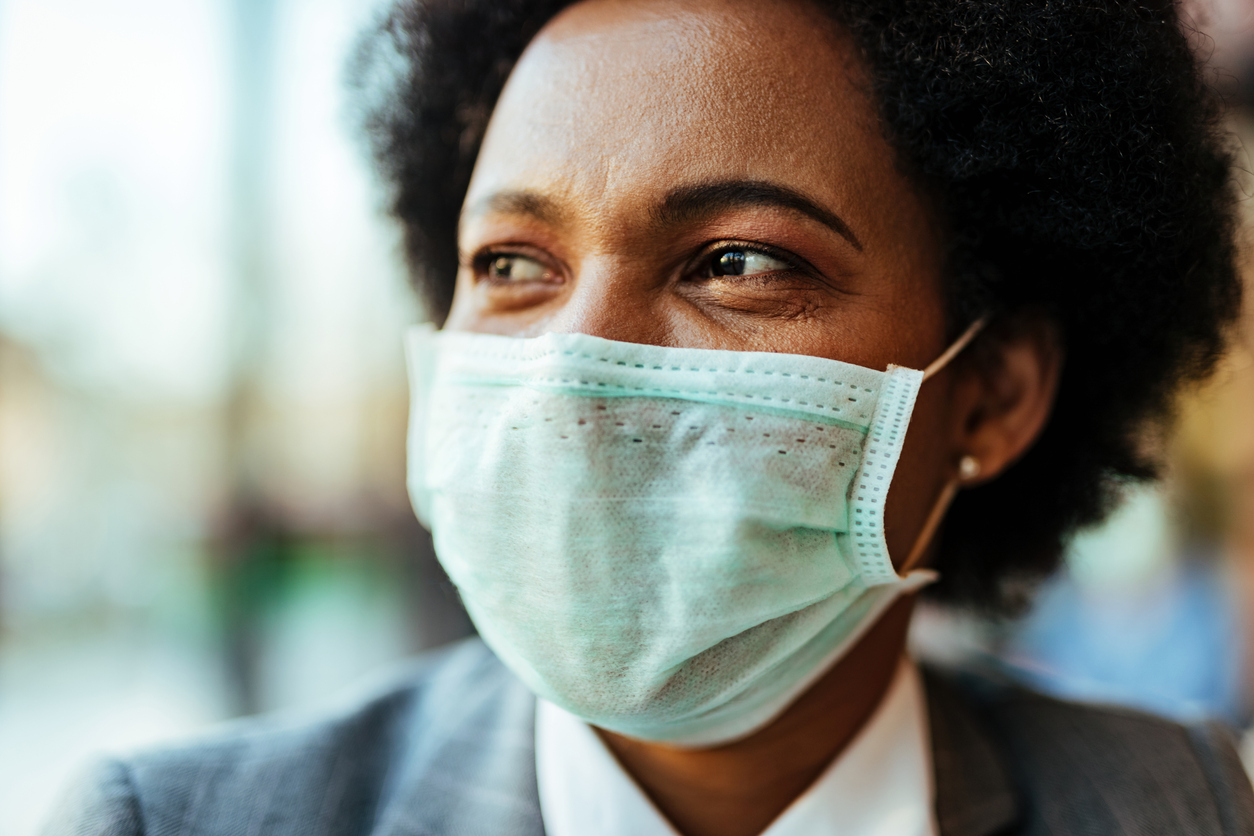
Bad data on vaccine equity: Lack of accurate racial-ethnic data on coronavirus vaccinations in several states—including admittedly inaccurate data in Missouri—is making it difficult to determine whether vaccines are being distributed equitably.
Follow their lead: Health centers are achieving equity in vaccinating people of color, according to Kaiser Family Foundation. Between January 8 and May 21, 2021, people of color made up 64 percent of first dose and 61 percent of second dose recipients at health centers. Black people made up 12 percent of first doses and 11 percent of second dose recipients.
With pressure, vax access improves: Health advocates in Mississippi are successfully pressing for equitable vaccination access in Black communities. Black residents, who make up 38 percent of the state’s population, are receiving 40 percent of vaccine doses each week, US News reports.
Black kids at risk: Dr. Rhea Boyd, a pediatrician and community health advocate, argues that racial and ethnic equity in vaccine distribution is critical as COVID-19 vaccines become increasingly available to children.
Unmasked, Black men breathe easier: In light of the latest CDC guidelines to forgo masking in public, a new study finds that Black men were more likely to be viewed and treated as criminal suspects while wearing masks.
Lives lost in rural health deserts: The record closing of 19 rural hospitals in 2020 correlates with major spikes in COVID-19 mortality in rural counties with significant Black populations.
Future of Work & Learning
WFH, unless you’re Black: The option of working from home during the pandemic, was far less available to Black workers than white or Asian American/Pacific Islander (AAPI) workers. Just over 20 percent of Black workers were able to work from home versus 25.9 percent of white workers and 39.2 percent of AAPI workers, according to the Economic Policy Institute.
Don’t blame unemployment insurance: Annie Lowrey, writing in The Atlantic, urges policymakers and employers struggling with worker shortages to stop blaming unemployment insurance and other relief as disincentives to work and instead raise wages for low-income workers.
A shortage of good jobs: The worker shortage is underscored by the fact that about half of America’s workforce earns less than a living wage, according to the Better Employment and Training Strategies Task Force, which is urging the Biden administration to make increasing the quality, not just the quantity, of jobs a priority.
Labor rights are civil rights: Labor rights and civil rights are an intertwined struggle in that the core idea behind civil rights is that people should have the freedom to exist in political and social equality with one another (including their employer), the Economic Policy Institute argues.
Black workers tap into short-term training: Black people are overrepresented in short-term training programs in Washington State, making up 4.4 percent of state residents but 8.6 percent of training enrollees, New America finds.

First-generation grads lag: First-generation college graduates, who are more likely to be Black or Latina/o, experience lagging social and economic mobility compared to those with a family history of college attendance. Market Watch reports. Households headed by first-generation college graduates have an annual median income of $99,600 and median wealth of $152,000. Peers whose parents graduated from college earn $135,800, with typical assets of $244,500.
Student loan drag on wealth: Solving the student-loan debt crisis is key to closing America’s racial wealth gap, CNBC reports. Approximately 85 percent of Black students take out student loans compared to 69 percent of white students.
Black students shoulder more debt: Black college graduates carry an average of $25,000 more student debt than white college graduates, according to the Center on Education and the Workforce at Georgetown.
Improving the path to credentials: The Community College Research Center explores strategies to improve rates of postsecondary credential attainment among Black and other people of color. Recommendations include aligning short-term credentials with community college degree programs.
Upping enrollment at community colleges: A 10 percent decline in community college enrollment during the pandemic, including a 30 percent decline for Black and other first-year students of color, is prompting a call for a new community-based, equity-focused strategy for creating access to community colleges.
Coaching students to the finish line: A new initiative aims to use one-on-one coaching to encourage former students at HBCUs who did not complete their degrees to resume their studies. More than 5 million Black Americans aged 25 and older have some college but no degree, according to 2020 Census Bureau data.
Racism at work: Economic opportunity in America is sagging, a McKinsey survey reveals. Among the findings: many Americans, including 41 percent of Black people surveyed, believe their identity negatively affects their future job prospects.
The digital native myth: Closing the digital skills gaps among younger workers is key to addressing structural inequities exacerbated by the pandemic, WorkRise argues. Black youth and young adults ages 16-24 are three times (48 percent) more likely than white people (16 percent) to have no or limited independent digital skills.
#WorkForceEquity: A #FundWorkForceEquity Twitter chat engaged employers, policymakers, and other stakeholders, including the Joint Center, in finding ways to identify and address racial bias in the workforce development ecosystem.
Political Studies
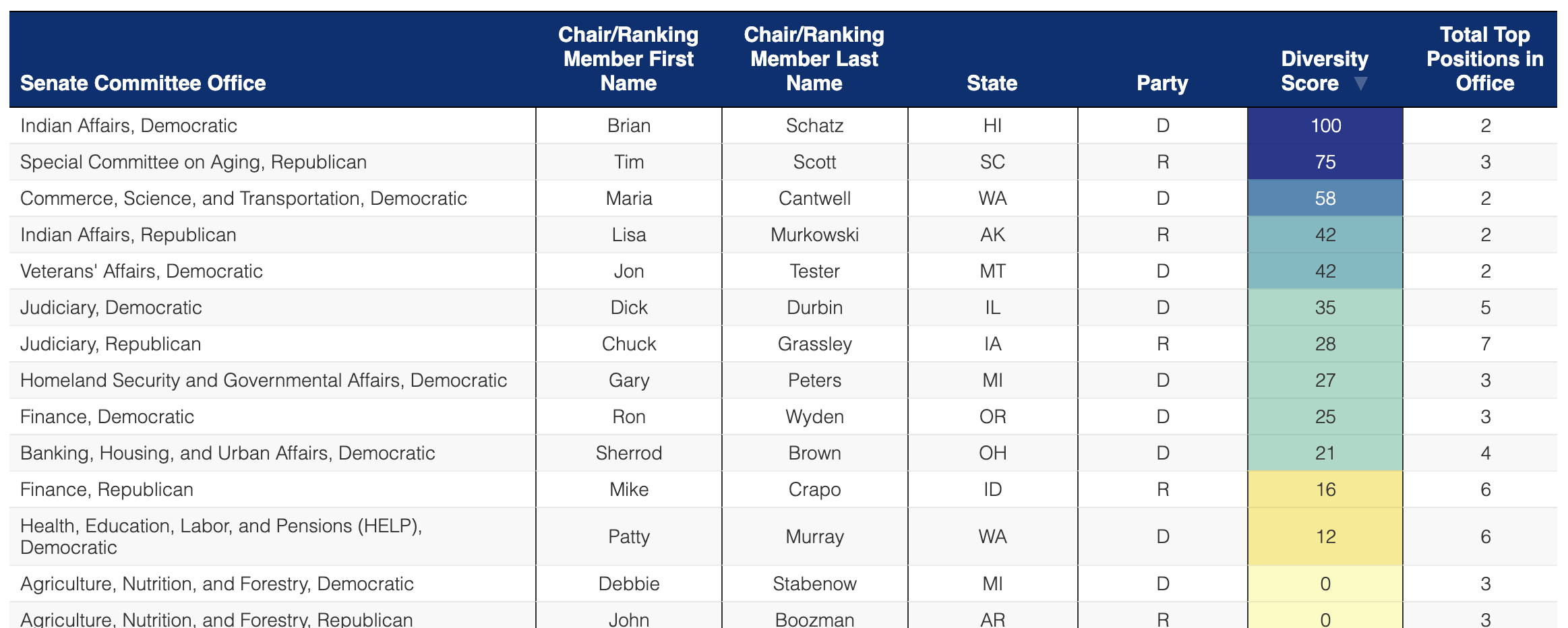
Racial diversity among Senate committee top staff: The Joint Center’s interactive report card shows that as of June 7, out of the 39 U.S. Senate full committee offices, less than 31 percent have at least one person of color among top staff (8 Democratic offices and 4 Republican offices).
Voting rights hit a wall: President Biden’s track record on bipartisanship may not be enough to overcome the deep divides in Congress and secure new voting rights legislation. GOP Senators are blocking the For the People Act, which the House passed.
Texas Dems walk out: A showdown looms over a voting rights battle in Texas, where Democratic lawmakers staged a walkout over proposed GOP legislation to increase voting restrictions and successfully blocked the bill for now.
Bipartisanship may have a pulse: Shared common interests in passing national infrastructure legislation may revive moribund bipartisanship in Washington, two former chiefs of staff to former Alabama senators argue in an op-ed.
Recent Middle East conflict renewed #BLM support for Palestinians: NPR reports that the recent Israel-Hamas conflict resulted in members of the Black Lives Matter movement recommitting their support for Pro-Palestinian protests.
Elusive restitution: On the centennial of the Tulsa Race Massacre, which destroyed the prosperous “Black Wall Street” neighborhood of Greenwood in 1921, restitution for survivors and their descendants remains in question, Politico reports.
Money, mouth: Color of Change’s Arisha Hatch argues that corporations that took in billions of dollars in pledges in the wake of last year’s racial justice protests must back up their public statements against systemic racism by changing their own policies, including ending environmental racism and wage discrimination against Black workers. Likewise, as Fast Company reports, the 159 tech companies that made diversity pledges in the wake of the George Floyd murder should be more transparent in how they are spending the money.
Movement Building
American Constitution Society hosts their 2021 national convention June 7 through 11 focusing on “our Constitution’s ‘founding failures’ when it comes to race and equality in this country, and reckoning with our past to create a more just future.” Speakers include United States Secretary of Homeland Security Alejandro Mayorkas, Congresswoman Grace Meng (D-NY), Attorney General of Connecticut William Tong, Associate Justice of the California Supreme Court Goodwin Liu, ACS President Russ Feingold, and many more.
As the first Black woman to lead the Centers for Medicare and Medicaid Services (CMS), Chiquita Brooks-LaSure outlines how she will approach health equity, maternal health, health coverage, and reproductive healthcare to reach the “Biden administration's goal of increasing health coverage, equity, and access.”
Black Futures Lab pledges to protect Black communities hit hardest by COVID-19 by prioritizing health and safety, leading by example, and educating and encouraging loved ones about getting the vaccine.
Color of Change issues a petition urging Google to conduct a racial equity audit that will provide “specific areas where it must eliminate discrimination in its products and workplace.”
National Skills Coalition issues a petition to US Senators to expand Pell to high-quality, short-term training in the US Innovation and Competition Act.
The Boston Globe celebrates Juneteenth by “shining a light on films and filmmakers telling stories of Black imagination, strength, and liberation.”
Events
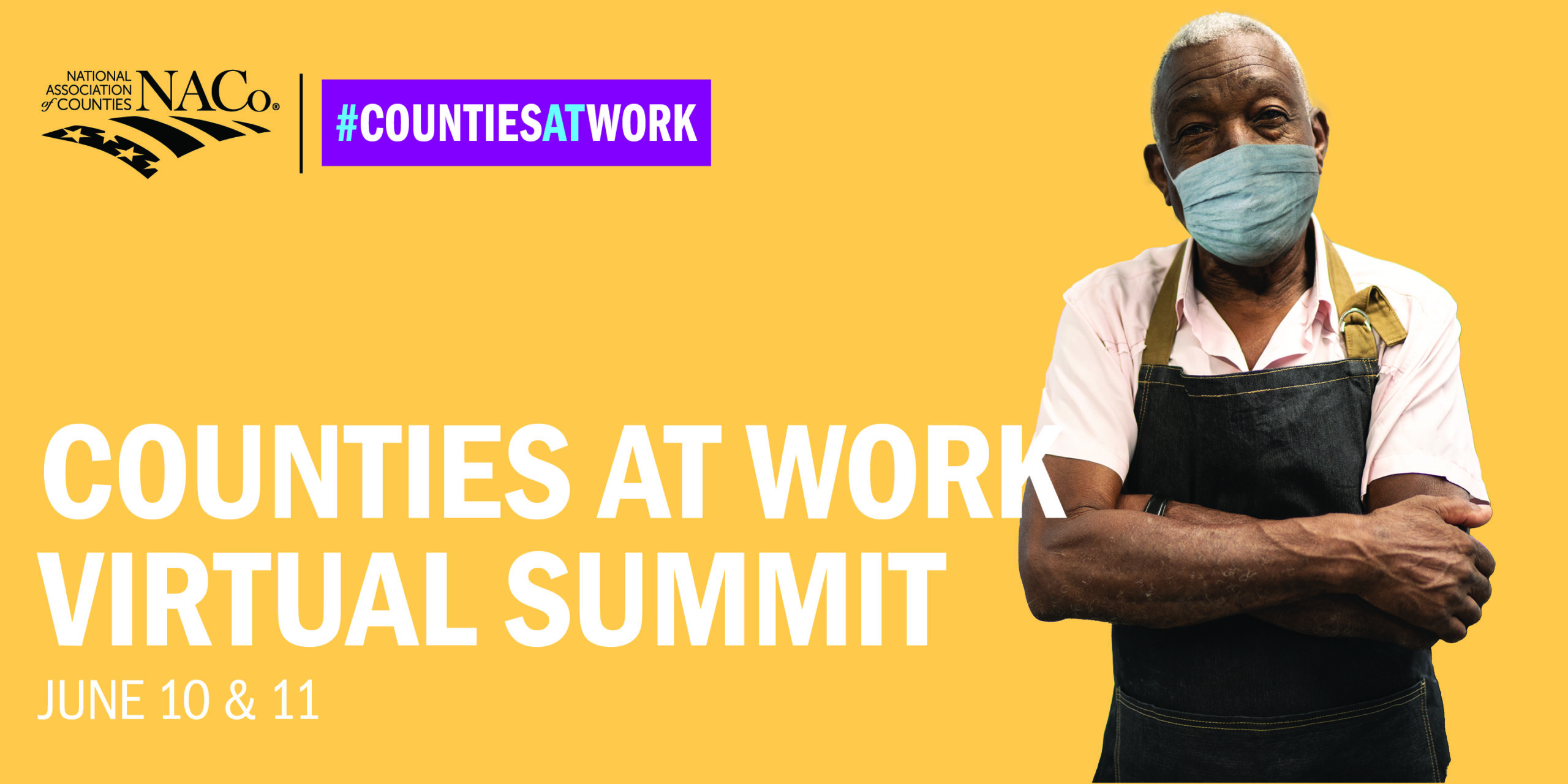
Upcoming events include "NACo Counties at Work Virtual Summit" with Joint Center Workforce Policy Director Dr. Alex Camardelle (National Association of Counties, June 10-11); “Strategies for Protecting Communities of Color in the DMV Region: Defunding the Police and Exploring Other Alternatives to Policing” (Urban Institute, June 10); “How to Adapt and Rebuild Your Small Business During COVID-19” (NCNW, June 10); “2021 Arise Town Hall Tuesdays - A better Alabama for all” (Alabama Arise, June 15); “Historic Crisis, Historic Opportunity: Using Evidence to Mitigate the Effects of the COVID-19 Crisis on Young Children and Early Care and Education Programs” (Urban Institute, June 21); “What Do Trade and Manufacturing Have to Do with Racial Justice?” (The Century Foundation, Groundwork Collaborative, and Urban Manufacturing Alliance, June 24).
Last week, events were held by Color of Change, Federal Reserve Bank of Minneapolis, and the Learning Policy Institute.
Podcast
Fact-checking the labor shortage hype (Economic Policy Institute)
The Joint Center thanks the Annie E. Casey Foundation, the Boulé Foundation, the Democracy Fund, Toyota Motor North America, Inc., UPS, and the Walmart Foundation for additional support that has allowed us to do some of our COVID-19 and Black Communities work.
To receive the Joint Center’s emails, sign-up here.

